Description and background
Excerpt from article by Eary Irish Cinema [1]
The most notorious 1920 attempt by the British authorities to use the visual media of photography and film to sway British public opinion against the Irish Republican cause came in the guise of the so-called Battle of Tralee. This was actually an IRA-Black-and-Tan skirmish on 12 November at Ballydwyer creamery in Ballymacelligott, on the road between Tralee and Castleisland, that had left two men dead. By chance, Dublin Castle’s police information officer Captain Hugh Pollard was leading a party of foreign correspondents in the area, and they happened across the aftermath of the incident. Among them was journalist Clifford Hutchinson, who reported in the Yorkshire Post on 15 November that “two cinema operators accompanying the party set up their apparatus, and despite the bullets flying around, […] coolly took photography of the fight (“Stern Struggle with Sinn Fein”).

Subsequent events suggest that these cinematographers were working for British Pathé, but Pollard saw an opportunity to create a more politically useful event. Staged photographs of the incident appeared in several British publications, including the Illustrated London News, but were quickly exposed as fakes taken at Vico Road in Killiney, Co Dublin. Film was also supposedly shot at Vico Road and incorporated into a newsreel item released by Pathé on 18 November 1920. “The film, which was taken under fire,” the Daily News reported and the Freeman’s Journal reproduced, “shows wounded Sinn Feiners being led away as prisoners by Auxiliaries of the R.I.C., and struggling vigorously, in spite of their condition. An Irish girl is shown pleading with the British troops to allow her brother to go free. In the end he is led away in a lorry” (“A ‘Fight’ Near Tralee”). ”). Although this film seems to have been released, it does not seem to survive in the British Pathé archive, and this may be because it was exposed as a fake. Confronting the British Attorney-General in the House of Commons about the faked photographs in early December, Irish Parliamentary Party MP Jeremiah MacVeagh asked “whether a film was also taken and had to be abandoned because at the ‘private view’ it was found that one of the corpses had moved? (Laughter)” (“Grim Reality”). [1]
Then and now
The photograph below purports to be the result of a military engagement in County Kerry (reported as the “Battle of Tralee”). The Illustrated London News of 27 November 1920 used the photograph on its front page with the following description: “The above photograph is typical of the state of things in the country. It was taken during the “Battle of Tralee” where a convoy of R.I.C. Cadets was ambushed by Republicans. Three Sinn Feiners were killed and one cadet was wounded. The cadet and two of the Sinn Feiners are seen lying in the road”. The photo was published in a number of other newspapers before the actual location was identified as Vico Road in Killiney. The photograph was found to have been staged by members of RIC Intelligence. The British government was forced to admit in December 1920, in the House of Commons, that the photograph was faked.
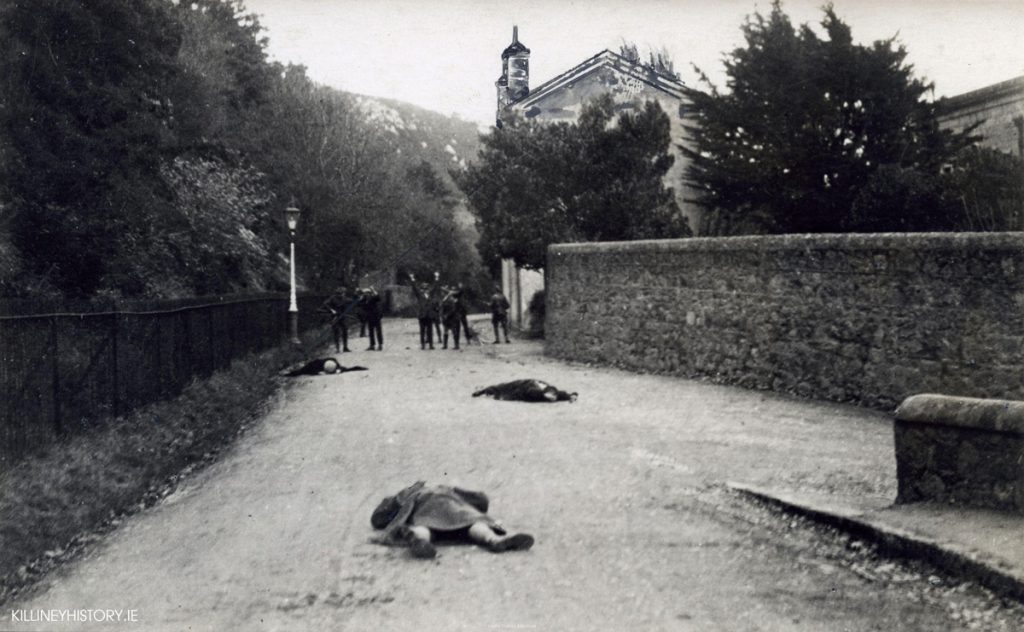
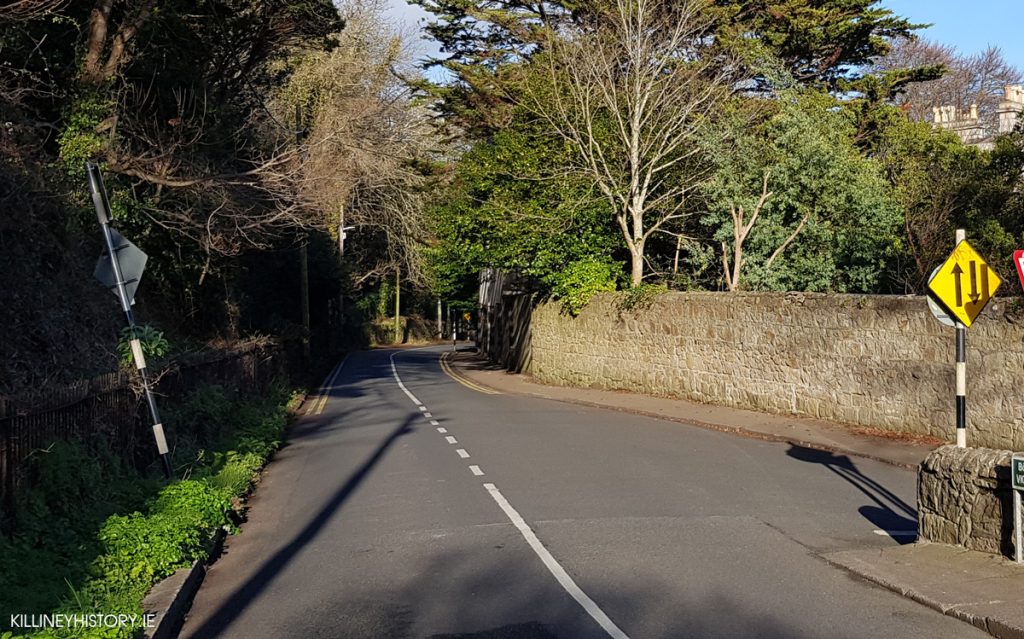
Fake battle
A fake battle was staged for the British Press at Vico Rd, Killiney, Co. Dublin. The men in the photos come from the platoon commanded by C.E. Vickers , which was used for a number of propaganda shots. The photos were probably taken by J.W. Brooke who was in the ADRIC at that time, and a well known WW1 official photographer. The fake battle had been staged by Pollard and Garro-Jones, a colleague of Major Cecil Street. On 2 December 1920 in the House of Commons, the British government denied any knowledge of these pictures or the circumstances in which they were produced. [3]
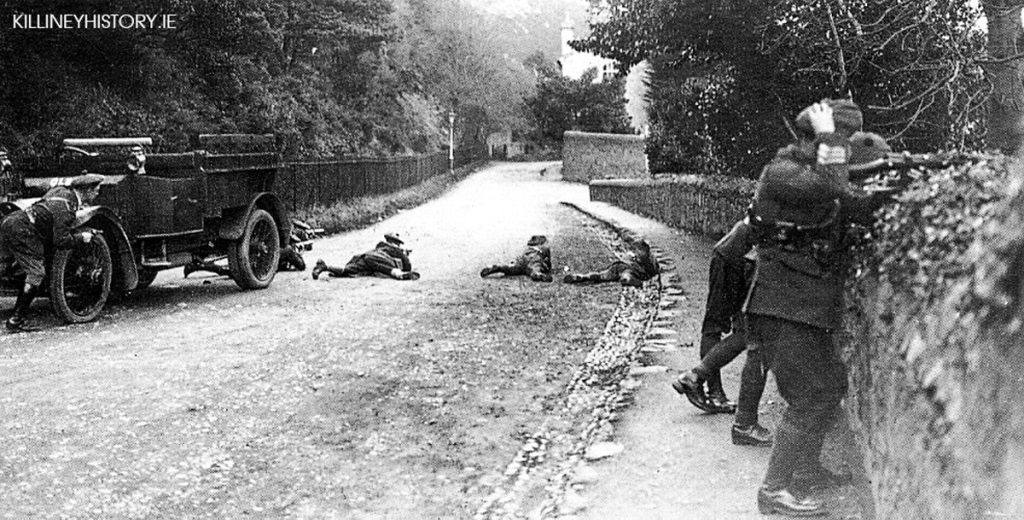
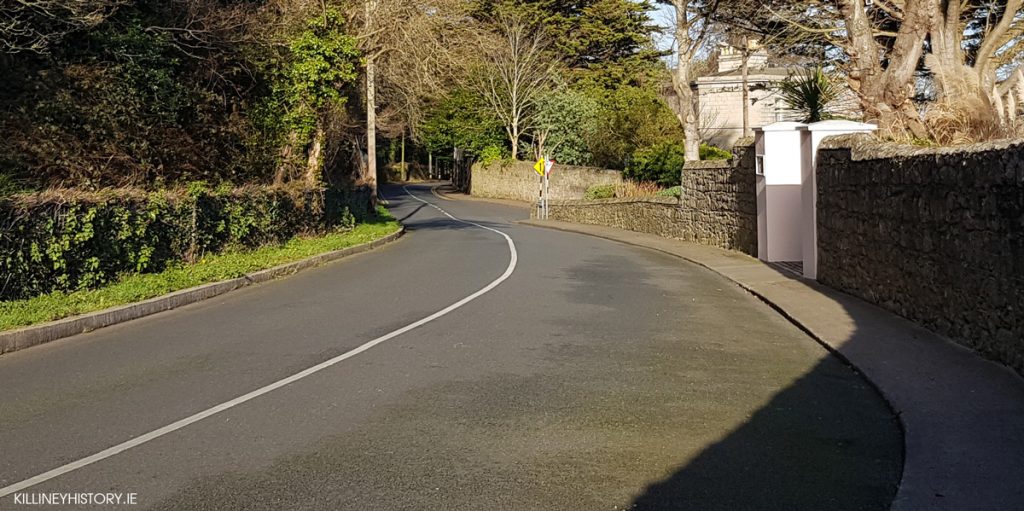
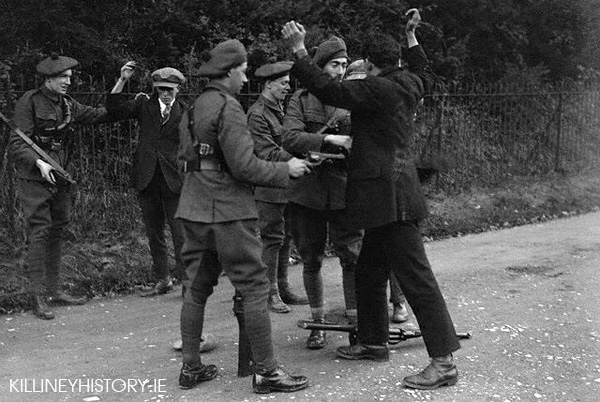
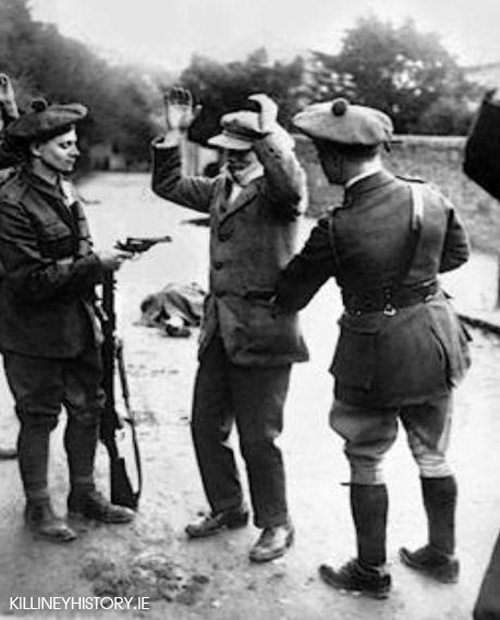
References
Earlyirishcinema.com. Ominous Flickers and Fade Out for Irish Cinema in 1920, online article of January 2021. https://earlyirishcinema.com/2021/01/05/ominous-flickers-and-fade-out-for-irish-cinema-in-1920/
Barry, Michael B. “How the British Faked ‘Battles’ During the War of Independence.” Irish Times 20 Jun. 2019. https://www.irishtimes.com/culture/books/how-the-british-faked-battles-during-the-war-of-independence-1.3930891
Grant, David. “The Battle of Tralee Fought at Vico Rd, Killiney” The Auxiliary Division of the Royal Irish Constabulary. http://theauxiliaries.com/INCIDENTS/vico-road/battle-vico-road.html